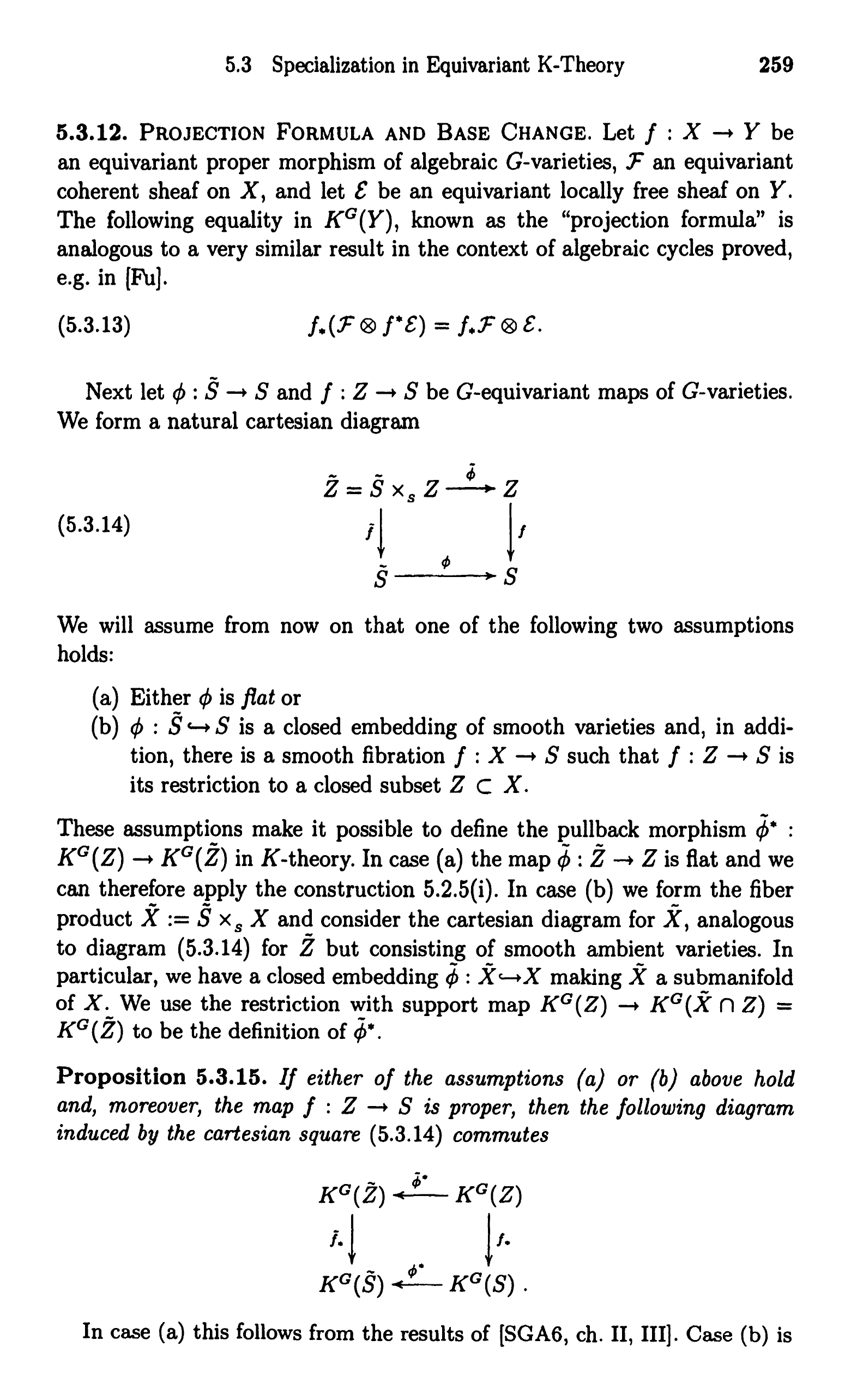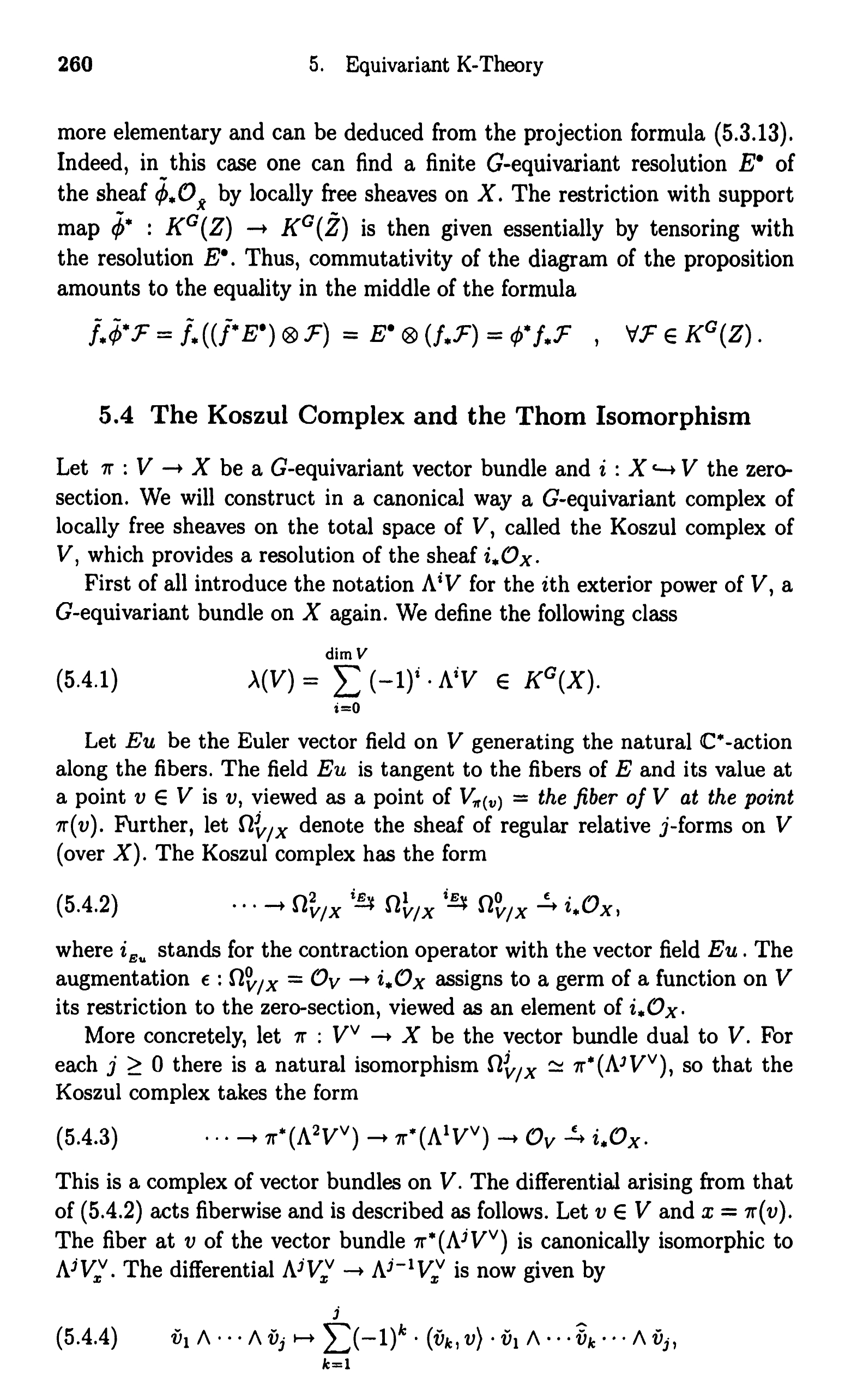Below is a fragment of the book by Chriss and Ginzburg. Proposition 5.3.15(b) is stated in $K$-theory. My question is, does the same conclusion (and proof?) of proposition 5.3.15(b) (i.e. base change) work in derived category instead of $K$-theory?
1 Answer
$\begingroup$
$\endgroup$
4
Actually, even in K-theory the assumption of case (b) is not enough to ensure the base change formula. Indeed, take for example $Z = \tilde{S}$ and $f = \phi$. Then $\tilde{Z} = Z = \tilde{S}$ and the maps $\tilde{f}$ and $\tilde\phi$ are the identity isomorphisms, hence one of the maps in the base change is the identity, while the other is not.
As for the derived category, you need to derive the functors, then in case (a) everything works, but not in case (b). You can find a more general case in the book of Lipman.
-
$\begingroup$ Thank you! Is there a similar base change statement to (b) which is correct? Also, I am not familiar with any books by Lipman, how do I find this book? Did you mean that the book by Lipman has something similar to (b) which is correct? $\endgroup$ Commented Aug 16 at 19:47
-
2$\begingroup$ As I mentioned, you can look to the book of Lipman for the very general case where base change works. A simpler setup is also discussed in Section 2.4 of [Kuznetsov, A. G. Hyperplane sections and derived categories. Izv. Math. 70 (2006), no. 3, 447–547], (see in particular Corollary 2.27). $\endgroup$– SashaCommented Aug 16 at 19:52
-
$\begingroup$ Sorry, also I don't understand your counterexample: if $Z=\tilde Z = \tilde S$ then $\psi^* f_*$ is identity anyway because the sheaf does not change on $\tilde S$ under these operations, so I don't see anything wrong with base change in this case. $\endgroup$ Commented Aug 16 at 20:11
-
1$\begingroup$ If you want a map to be defined on the Grothendieck group, you should define the pullback as the alternating sum of derived functors. But the derived functors are not trivial in this case. $\endgroup$– SashaCommented Aug 16 at 20:23


